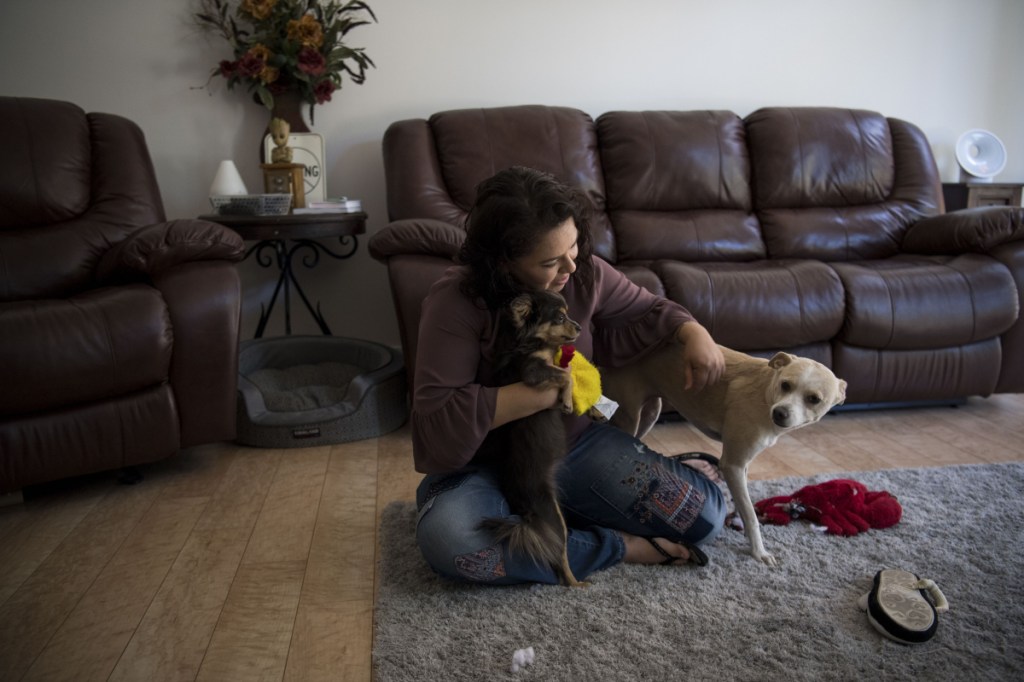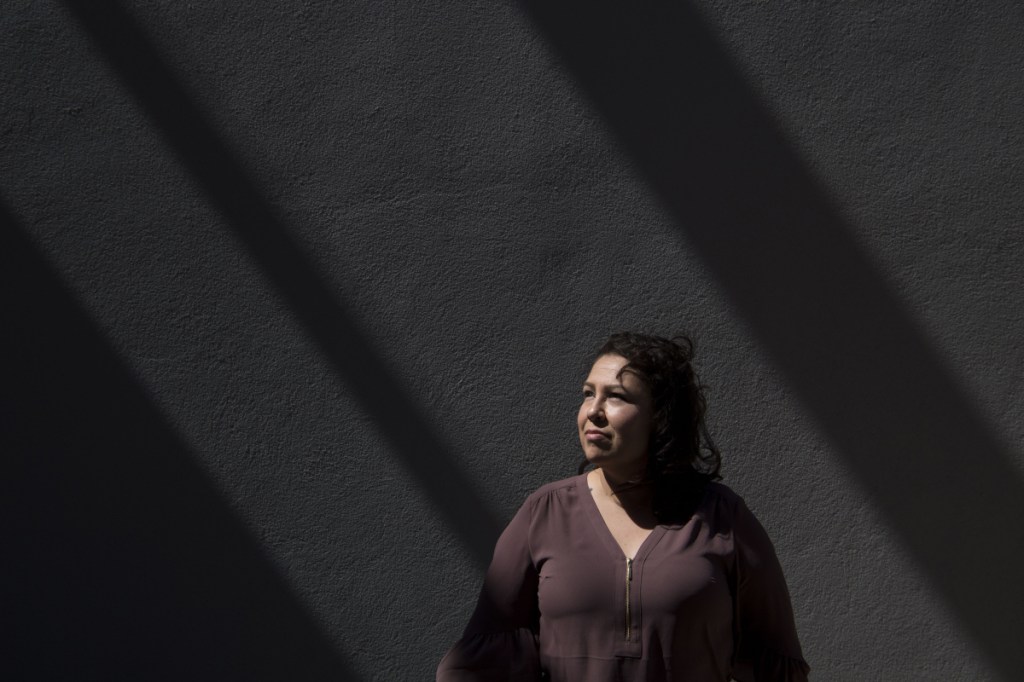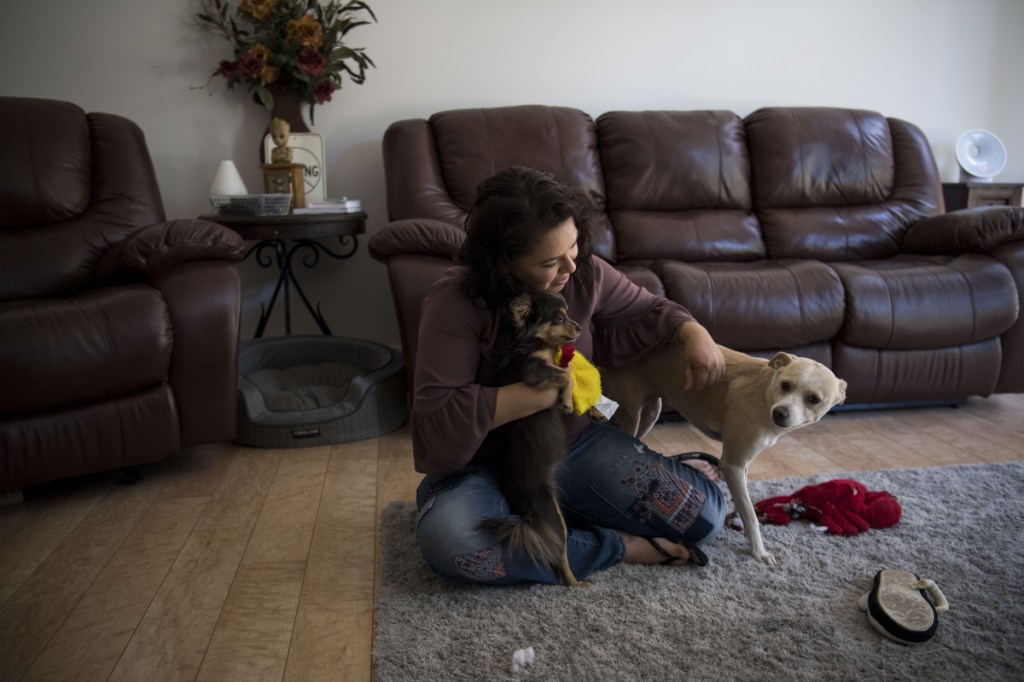When their marriage fell apart, the most contentious issue between Ruby Torres and John Joseph Terrell was the fate of their frozen embryos. There were seven in storage, created with her eggs and his sperm before Torres underwent chemotherapy and radiation treatment for breast cancer.
Torres, 37, wanted to use the embryos to have a baby. In divorce proceedings, she told the judge that the embryos probably represented her only chance to have biological children. Terrell protested that he had no interest in having a child with Torres.
With the number of frozen embryos in the United States soaring into the millions, disputes over who owns them are also on the rise. Judges have often – but not always – ruled in favor of the person who does not want the embryos used, sometimes ordering them destroyed, following the theory that no one should be forced to become a parent.
Arizona, however, is taking the opposite approach. Under a first-in-the-nation law that went into effect July 1, custody of disputed embryos must be given to the party who intends to help them “develop to birth.”
“Most people believe that frozen embryos should have a chance at life,” state Sen. Nancy Barto, a Phoenix Republican, said in introducing the bill inspired by Torres’ case.
The legislation could dramatically alter the practice of fertility medicine, as well as the debate over when life begins. It is already fueling an argument by some conservative groups that frozen embryos are not mere tissue over which people may exercise ownership rights but human beings who should be accorded rights of their own.
The Thomas More Society, an anti-abortion group, is assisting in cases across the nation, asking judges to consider the embryos “children” and to make decisions based on their best interest. The society argues that a person who creates an embryo in preparation for in vitro fertilization has “voluntarily exercised his procreational rights” and that the resulting embryos “cannot be legally terminated at the whim of others.”
Abortion rights advocates say any legal endorsement of those arguments, if upheld, would effectively gut the right to an abortion. If a days-old embryo in a freezer has a right to life, why not a days-old embryo in utero?
Rich Vaughn, chair of the American Bar Association’s committee on fertility technology and founder of the International Fertility Law Group, called the legislation “flawed” and said it could have potentially disastrous consequences for reproductive freedom and personal choice.
“The new law is in fact an end around aimed at establishing the ‘personhood’ of unborn embryos,” which is an important goal of anti-abortion campaigners, he said.
Judges in numerous states, including Massachusetts, Tennessee, New Jersey and California, have been swayed by that argument.
Decisions in other major cases have gone in different directions. In Illinois and Pennsylvania, embryos have been awarded to women because they could otherwise not reproduce. In others, embryos have been ordered to be donated to research or to remain frozen indefinitely until a time when there is “mutual agreement.”
Many of these disputes have become entangled in the stormy politics of abortion. Attorneys claim the right not to procreate is protected by the Constitution, citing Roe v. Wade and rulings that protect people’s access to contraception. With conflicting rulings in various states, many predict the issue will ultimately be decided by the U.S. Supreme Court.
In the Arizona case, Maricopa County Superior Court Judge Ronee Korbin Steiner had to balance Torres’ probable inability to have a child without the embryos with Terrell’s desire to not be a father.
The couple had been dating off and on in 2014 when Torres was diagnosed with a severe form of breast cancer.
During an impulsive few weeks in July, the couple went to the Bloom Reproductive Institute in Scottsdale, where doctors retrieved 14 eggs from Torres’ body and fertilized them with Terrell’s sperm. Seven embryos were formed and frozen.
Four days later, the couple married.
Three years after her cancer treatments, Torres said her doctors cleared her to try to become pregnant. She found out around that time that Terrell had been having an affair with another woman, and they agreed to divorce.
They got stuck on two things – the dog and the embryos. And so, a few months later, they found themselves in court.
Steiner, a former public defender in private practice, resolved the dog issue in about two seconds by ordering it returned to Torres. The embryo situation was more complicated.
Some courts consider embryos property, but figuring out what to do with them was not as easy as dividing them up evenly between the warring couple like other assets. Yet since they weren’t children who had been born, they were not subject to child custody laws, either.
“I’ve researched the heck out of it,” the judge said at last, adding, “They are not people, but they are special because they’re somewhere between a bunch of cells and the potential of being a person, so I do respect it.”
Torres offered every concession she could think of: She said Terrell would not bear any responsibility for the child, financial or otherwise. But if he wanted to be an active parent, she would accommodate that, too. At one point, she even suggested that she could pay him for use of the embryos, offering to turn over her entire retirement account.
Terrell was resolute. “It’s like a ticking time bomb,” he said in court, because of “child support or that child when coming of age coming for me.”
And so, in August, the judge made the decision for them. She said Torres had no right to use the embryos. But, in a surprising twist, the judge said they should not be destroyed. Instead, they should be put up for donation.
Torres could not bear her own baby – but a stranger could.
Torres is appealing the decision. Oral arguments were made in June, and a ruling is expected any day.
News of the controversial ruling soon reached the Arizona legislature. Barto said she wanted to help people in Torres’ situation. If someone selects Torres’s embryos, Barto told fellow legislators, “there will be children out there that Ruby will never be able to meet or care for” and the children “will never be able to know their genetic history.”
But the state senator also recognized the rights of those who don’t want their embryos used. The bill also states that they would not be liable for child support.
The Arizona legislature made quick work of the bill. The Senate passed it 18-12 in February, the House 33-25 in March. It was signed into law on April 3.
But the law cannot be applied retroactively and therefore should not directly affect the Torres case, so she will have to await the results of her court appeal.
Send questions/comments to the editors.




